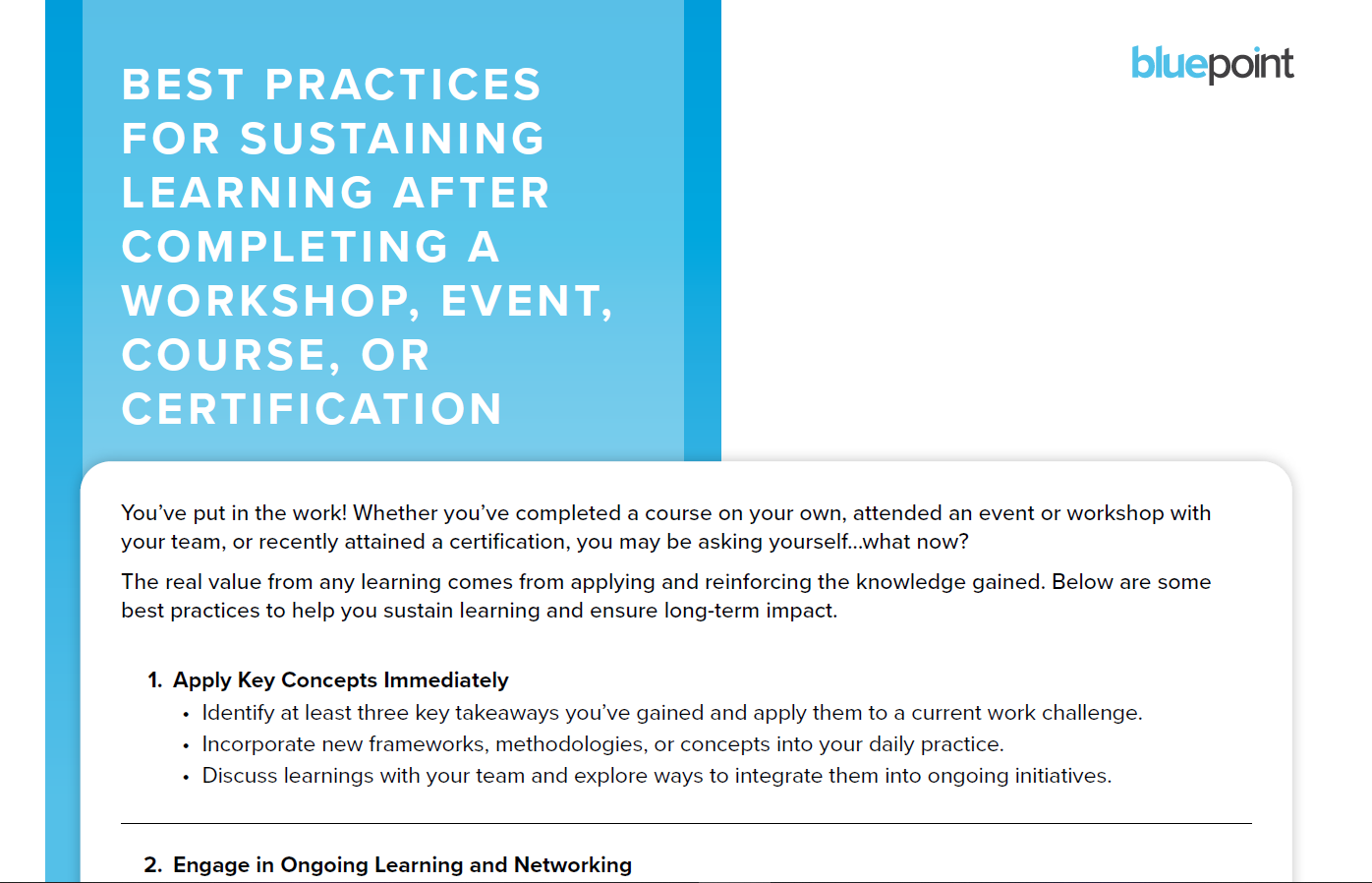The best leaders know when to manage and when to lead, shifting seamlessly depending on the present demands. They read the situation and behave in a way that is most impactful for both the team and the organization.
This adaptability stems from the recognition that there are suitable contexts for both management and leadership, making it crucial to excel in both domains. Each of these roles also entails distinct mindsets and skill sets that must be honed to achieve effectiveness.
Let’s take a look at the key differences between managing and leading.
Leaders Have Vision, Managers Have Goals
Leaders focus on what they believe is possible, inspiring others to turn that vision into reality. Managers prioritize measuring and achieving goals and objectives while monitoring day-to-day tasks along the way.
Leaders Grow, Managers Maintain
Leaders remain passionately curious and constantly seek to improve themselves, their teams, and the organization. Managers maintain their current skills and double down on the skills that were covered in the manager’s toolbox, such as goal setting, alignment, delegation, and providing feedback.
Leaders Coach, Managers Direct
Leaders believe that their team members are innately talented, capable of finding solutions, and full of untapped potential. Leaders choose to engage in powerful coaching conversations where the other person leaves the conversation better in some way. Managers rely solely on directing others and providing the majority of the solutions.
When and how should you exhibit your leadership instead of managing?
It is tempting to think of a major event as the only time and opportunity for us to exhibit our leadership when, in fact, leadership should happen during our day-to-day conversations. Powerful leadership conversations are the lifeblood of high-performing teams and organizations. The quality of these conversations determines the quality of the leadership.
Improving your communication and conversation skills can positively impact your overall leadership skills.
Consider the following questions to assess the quality of your conversations and determine where there is room for improvement.
- Do you welcome challenging, emotional issues?
- Do you routinely invite feedback and coaching from others?
- Are you genuinely appreciative and affirming of others (instead of providing flattery or criticism)?
- Do you embrace differences and diversity (rather than gravitating toward like-minded people)?
- Are you able to be totally present with others?
- Do you provide feedback to truly help others (rather than trying to fix their flaws)?
- Do you have a naturally optimistic bias?
- Do you readily embrace your personal accountability even when you’ve made mistakes (instead of blaming others)?
- Do others see you as open and transparent?
- Do your team members see you as vulnerable?
Remember to think to yourself—would it be more beneficial to lead or manage in order to properly take on this current demand?
About The Author

Christina Beaulne
Christina is a Senior Instructional Designer for Bluepoint. She is responsible for creating curriculum to help leaders develop their coaching skills to not only achieve personal and organizational goals, but also to create extraordinary impact in the lives of employees and the community at large.
Related Resources

Leadership Pulse: Leaders as People Developers
leadership-essentials

Beyond the Individual: How Coaching Transforms Teams
leading-teams

7 Leadership Strategies to Combat Change Fatigue
leading-change
Subscribe to newsletter
Subscribe to our newsletter today and receive innovative, insightful and thought provoking resources (videos, webinars and articles) all effective tools for developing leadership talent.
Connect with Us Today!
This is a gated resource. Contact sales at info@bluepointleadership.com for more information or reach out here: Contact Us
This is a member-only resource. Contact sales at info@bluepointleadership.com for more information.


